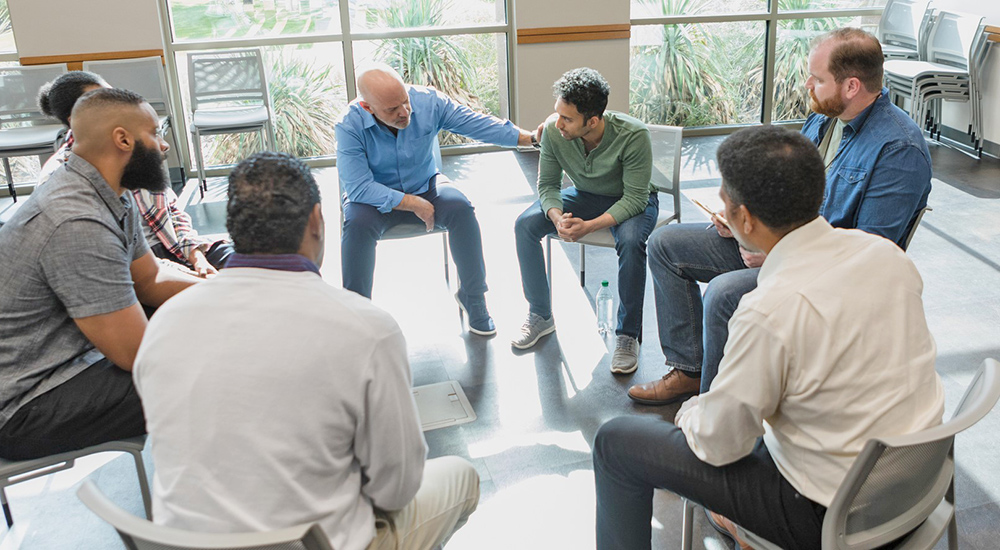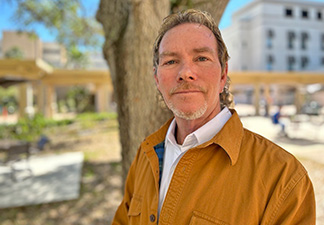Jeffrey Decresie separated from the Army in 1997. The experiences he lived through during his time in war, combined with an unshakable feeling that he’d left his brothers behind, became the cradle of an alcohol dependency. It would take nearly 25 years and the VA Substance Abuse Treatment Program to shake his addiction.
He joined the Florida National Guard and later became a sheriff’s deputy with Pinellas County. But in 2015, he ended his career in law enforcement and found himself descending into a place he never thought he’d be. Perhaps it was the guilt of leaving active duty finally catching up to him or the weight that comes with constantly adjusting to meet the needs of others. A habit that he once viewed as a casual pastime took root as a disease which slowly began to erode everything around him.
“I saw those signs but didn’t want to accept it.”
“For quite a few years, I was using alcohol a little more than everyone else. I was still able to function and contribute, so to me everything was fine. But in 2020 my alcohol dependency made me extremely ill. I couldn’t keep weight on or hold a job,” he said.
After more than a decade of working in law enforcement, Decresie could easily recognize the signs of addiction. “I was able to recognize those signs in myself but didn’t want to accept it until my wife reached a point where my habit made her feel it was best if I didn’t live at home anymore. I went to stay with my parents,” he said.
Decresie felt solitary in his dark place, but when he turned to Bay Pines VA for aid, his world illuminated.
“When I entered the Substance Abuse Treatment Program (SATP), I was of the mindset that I was there to get help. Anytime I needed something, if it would help me during my journey, the staff would go out of their way to get it,” he said.
SATP is one of many resources VA offers to Veterans who are on a journey toward recovery. It is a voluntary 28-day inpatient program offered to health care-eligible Veterans who are living with substance use disorder. A Veteran is offered therapies such as Cognitive Behavioral Therapy, Motivational Interviewing and Motivational Enhancement Therapy.
“The approach we take with each Veteran is recovery based and Veteran-centered,” said Todd Holliday, SATP program manager. “We provide both group and individualized care so we can really understand how to help each Veteran reach their goals in recovery.
“We don’t see addiction as being any different from other health issues. It’s a very difficult illness to recover from and it takes a lot of ongoing effort. Once the inpatient program ends, Veterans sit down with staff to determine which type of outpatient treatment would be best for them.”
His goal is to share new insight
Once Decresie completed SATP, he chose to continue his recovery in Bay Pines VA’s Intensive Outpatient Program. He faithfully attends three times a week. He is grateful for the services he’s receiving and plans to continue his journey of self-discovery by paying it forward. His goal is to use the tools he acquired to impart on others his newfound insight.
Sobriety is a requirement of SATP and the Veterans who participate have the freedom to leave should they choose. For Decresie, staying in SATP was not an easy decision, but he quickly realized remaining was better than the alternative.
“My whole goal is just to reach somebody. I can’t change the world, but if I could help save one life, my mission’s complete,” he said.
Now months sober, Decresie appreciates the world of possibilities that have opened for him. As he looks toward his future, his goal is to become a peer support specialist.
Prior to entering SATP, Decresie would bottle up his hurt and let no one in. Today, he tries his best to see the sunny side of things. Whether it’s as simple as holding the door open for somebody or penning a poem about preventing Veteran suicide, he remains motivated by the feeling that’s evoked by doing good for others.
“If I get certified as a peer support specialist and I’m able to sit down with these men and women who also realize they need help and one of them, who previously thought they were alone, realizes I was once in their shoes, all that I’ve been through will be worth it,” he added.
Topics in this story
More Stories
Caregiving can be a deeply rewarding journey, but it also can be overwhelming and isolating. That’s why support and connection can make all the difference.
The slopes of the Winter Sports Clinic help Veterans with disabilities remember that pushing boundaries—and not their limitations—is what defines them.
One unbreakable bond shows that "even little things can change people’s lives.”







I have been through substance abuse help before and will not be going back. My objection is religion. I will not allow myself to be browbeaten by some Oxford Minister, or by other members in treatment. I can not handle religion in any dose. If faith in the unseen is important, count me out.
I need help